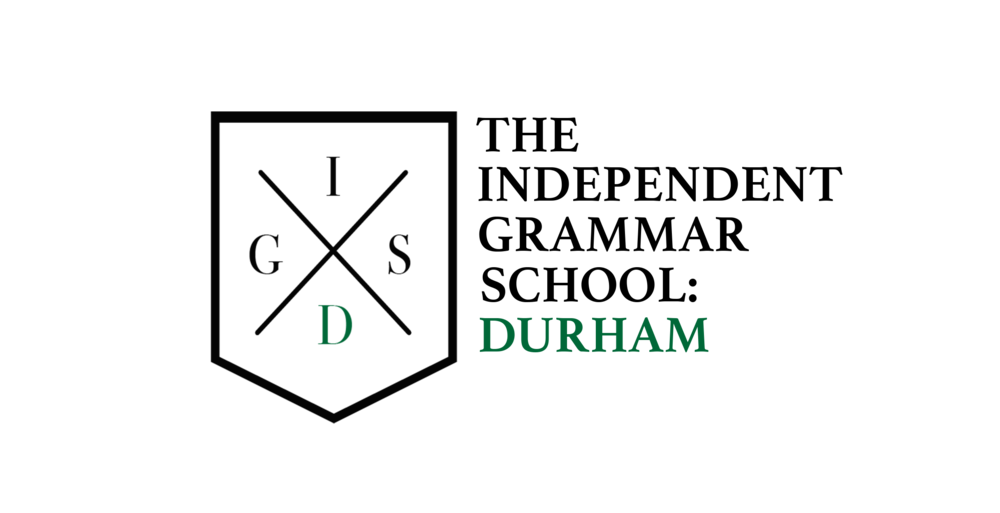The words we use to describe our curriculum are "stretch, enjoyment and academic rigour". We hope that, as parents and children experience this, they will begin to appreciate how the IGS: Durham approach to education prepares young people so well for whatever the future holds.
Children respond to being stretched and challenged. We will do that! First and foremost, in our view, it is that stretch and challenge that brings satisfaction and enjoyment. Children love to master difficult things and, in the best sense of the term, to "show off" their mastery. We will give them lots of opportunities to do that.
A typical school day at IGS: Durham comprises Maths and English in the morning and then an afternoon of mainly topic work. Sport and Music are included at appropriate times.
Maths and English focus on providing children with the essential skills. Repetition and rote learning are common. Times tables are learned thoroughly and mastered by the end of primary school, if not long before. Major emphasis is given to grammar, spelling and punctuation. Children are taught to read at the earliest age reasonably possible. All children are encouraged to read as much as possible, making the most of the wide range of excellent literature in the beautiful school library. All children are taught nursery rhymes and poems - the things that, once learned in primary school, may well remain with them for life. In later primary years, children are introduced to traditional but now sadly neglected disciplines such as comprehension, dictation and précis for the more able. In short, this is an unashamedly traditional approach to the curriculum! In addition, from Year 2, children are introduced to French and a little later to Classics. Most children will be studying Latin by the end of Year 6.
The curriculum is significantly enhanced by using the Core Knowledge UK materials, which many of the best independent schools are now using. Parents may check these books out, either online or by visiting the school, and we are confident that they will be hugely impressed by their rigorous and interesting content.
During the afternoon study programme, all the major subjects in the curriculum are addressed over the course of a term. This takes place through a combination of more formal lessons and Project work. So, for example, if the topic chosen is "The Vikings", a visit could be arranged to Lindisfarne and that followed up with writing tasks, Art and Music, and History and Geography could also be covered. A topic on "Trees" could involve a forest school day, learning to recognise the major kinds of trees we see in England, and such a topic could involve Maths and Science. The Head of School will oversee the proportion of time given to each curriculum subject.
That combination of "tight and loose" - a highly structured morning followed by a more flexible afternoon - is what gives IGS: Durham its rigour and vitality.
Each class will have at least one PSHE lesson per week. PSHE stands for Personal, Social and Health Education and covers many important areas as we seek to prepare children for growing up, developing relationships, life in the wider world and in modern Britain. Central to these lessons will be the teaching of British Values. These lessons are incorporated in our assembly programme. Part of our aim at IGS: Durham is to help and encourage children to become good citizens as they enter the world, to do their honest best, to be loyal to their friends, to be tolerant of others and to make a real contribution for the good of those around them.
History is taught chronologically (in two parallel streams: World History and British History) and follows the course set out in the Core Knowledge textbooks. So, for example, Year Three children learn about Ancient Greece and Asian Civilisations, including the origins of Hinduism. They cover the period in British History from William the Conqueror through the medieval period to the beginning of the modern age and the Tudors, including the Reformation. Year Four History covers the Rise of Islam and the Crusades, and the period in Britain from Guy Fawkes to Sir Francis Drake. And Year Five move from Ancient Rome and then the Creation of Great Britain through to the American Wars of Independence and the French Revolution. Thus children will appreciate not only the broad sweep of British History but also the origins of British values they study during PSHE lessons and elsewhere. They also learn to appreciate the origins of major world religions and the history of other countries and cultures.
Geography covers "where you live", the Geography of Western Europe and Rivers in Year Three; Mediterranean and Eastern Europe, Mountains and British Geography in Year Four; and then in Year Five Maps and Weather, English regional Geography and Australian climate and major cities.
In all subjects, children are taught the importance of debate and argument and of listening respectfully to others whilst putting their own views forward persuasively and confidently. They are encouraged to express themselves clearly in speaking and writing. Spelling and grammar will be seen as very important indeed in all contexts.
We believe children thrive in this atmosphere of lively, positive, challenging and enjoyable learning.
For an example of our approach to the curriculum, click on the links for our Curriculum Policy, Year One Curriculum Plan and Scheme of Work
